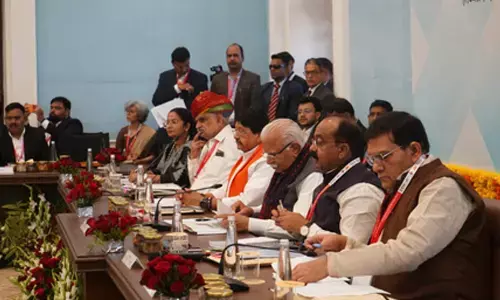Received notice from Income Tax department? Did you make any of these transactions? Check the full list here

Amit Gupta, MD at SAG Infotech
If an individual makes high-value cash transactions, there is a strong possibility that he/she might get a notice from Income Tax Department
If an individual makes high-value cash transactions, there is a strong possibility that he/she might get a notice from Income Tax Department. The different cash-related transactions include banks, mutual fund houses, brokerages, and property registrars. The high-value transactions must be always reported to the income tax department if the value surpasses a particular threshold.
The Income Tax Department has settlements with multiple government agencies to obtain financial records of individuals who indulge in high-value transactions but do not report them on their tax filing.
Here are a few examples of transactions due to which you may receive a notice from the Income Tax department:
Making deposits in bank FD
Cash deposits in bank FD should not exceed Rs 10 lakh. It is advised to a bank depositor making a cash deposit in a bank FD account that it must not surpass the Rs 10 lakh cap. The Central Board of Direct Taxes (CBDT) has announced that banks must reveal if individual deposits are more than the prescribed limit in one or more fixed deposits.
Making deposits in savings bank accounts
The cash deposit cap in a bank account is Rs 10 lakh. If a savings account holder deposits more than Rs 10 lakh during a financial year, the income tax department may serve an income tax notice. Meanwhile, cash deposits and withdrawals in a bank account crossing the Rs 10 lakh limit in a financial year must be revealed to the tax authorities. In current accounts, the cap is Rs 50 lakh.
Paying credit card bills
As per the CBDT, payment of Rs 1 lakh or more in cash against credit card bills should be reported. Additionally, if a payment of Rs 10 lakh or higher is paid in a financial year to settle credit card bills, the payment must be disclosed to the tax department. However, the foremost crucial concern is the income tax that applies to credit card transactions. You need to check that you don't cross your credit card spending cap, since the tax authority keeps track of credit card transactions as your credit card details are linked with your PAN Card, and thus it can be easily monitored online by the government. Any big transaction should be revealed while filing ITR. In case you are using credit cards on any high-value transactions, make sure to disclose them on Form 26AS while filing your ITR to avoid getting an income tax notice.
Purchase or sale of an immovable property
The property registrar must have to reveal any investment or sale of immovable property for an amount of Rs 30 lakh or more to the tax authorities. The property buy/sale transaction should be reported on your Form No. 26AS. In case, you are purchasing or selling property for more than Rs 30 lakhs, then also you are on the Income-Tax Department's radar. The Income Tax Department may examine whether the buyer has reported the income on his/her tax return.
Shares, mutual funds, debentures, and bonds related cash - transactions
Certain people who invest in mutual funds, stocks, bonds, or debentures must ensure that their cash transaction in these investments does exceed Rs 10 lakh. The I-T department has created an Annual Information Return (AIR) statement of financial transactions to trace high-value transactions of taxpayers. Tax officials will gather details against unusual high-value transactions on this basis in a particular financial year. In case any expense or transaction has been listed as a high-value transaction, verify the AIR section of your Form 26AS. PART -E of Form 26AS combines details about the high-value financial transactions.
Sale of foreign currency and indulging expense of foreign exchange
An amount of Rs 10 lakh or more in a financial year received by any individual for the sale of foreign currency, along with any credit in such currency, through a debit card or credit card or insurance of traveller's cheque, draft or other instruments, should be notified to the income tax department.
Authored by Amit Gupta, MD at SAG Infotech


















